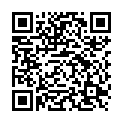|
|
|
| Module code: WIBASc-525-625-Ing19 |
|
1V+1U (2 hours per week) |
|
3 |
| Semester: 5 |
| Mandatory course: no |
Language of instruction:
English |
Assessment:
Written exam
[updated 14.03.2018]
|
WIBASc-525-625-Ing19 Industrial Engineering, Bachelor, ASPO 01.10.2013
, semester 5, optional course, general subject
WIB21-WPM-T-102 (P450-0040) Industrial Engineering, Bachelor, ASPO 01.10.2021
, semester 5, optional course, general subject
Suitable for exchange students (learning agreement)
|
30 class hours (= 22.5 clock hours) over a 15-week period.
The total student study time is 90 hours (equivalent to 3 ECTS credits).
There are therefore 67.5 hours available for class preparation and follow-up work and exam preparation.
|
Recommended prerequisites (modules):
WIBASc145 Physics
WIBASc165 Mathematics I
WIBASc365 English I
[updated 04.12.2020]
|
Recommended as prerequisite for:
|
Module coordinator:
Prof. Dr. Frank Ulrich Rückert |
Lecturer:
Prof. Dr. Frank Ulrich Rückert
[updated 20.01.2020]
|
Learning outcomes:
After successfully completing this module, students will:
- understand the different types of fluid energy machines
- have achieved skills working with the program AMESim and modeling fluid energy machines
- have developed an AMESim model and be able to present their simulation results
[updated 14.03.2018]
|
Module content:
Content:
General principles of fluid energy machines:
- Classification of fluid energy machines
- Flow and displacement machines
- Definition of performance and efficiency
Simulation:
- Graphical programming of fluid energy machines with AMESim
- Modelling of cycle-processes in AMESim
- Comparison of different plant concepts
Fans, blowers and wind mills:
- Determination of flow
- Impeller and speed triangle
- Power transmission and the Euler equation
Water turbines:
- Overview of types
- Pelton turbine, Francis turbine and Kaplan turbine
Steam turbine and gas turbine:
- Steam power process, heat exchangers and nozzle design (stator)
- Gas turbine cycle, combustion chamber and heat transfer
- Operation and construction forms
- Degree of reaction
- Influence of number of blades and rotor design (diameter)
Pumps:
- Stroke piston pumps
- Pump control and parallel operation modes
- Pumps and circulation piston compressors
- Gear pumps
Thermal piston machines:
- One- and multistage compressors
- Steam engine
- Combustion engine
[updated 13.09.2018]
|
Teaching methods/Media:
Teaching methods and media:
- Lecture with video projector and whiteboard
- Simulation exercises in pc-pool with AMESim
[updated 14.03.2018]
|
Recommended or required reading:
- AMESim can be obtained by students free of charge from LMS (Siemens)
https://www.plm.automation.siemens.com/de_de/academic/resources/lms/amesim-student-registration.shtml
[updated 14.03.2018]
|

